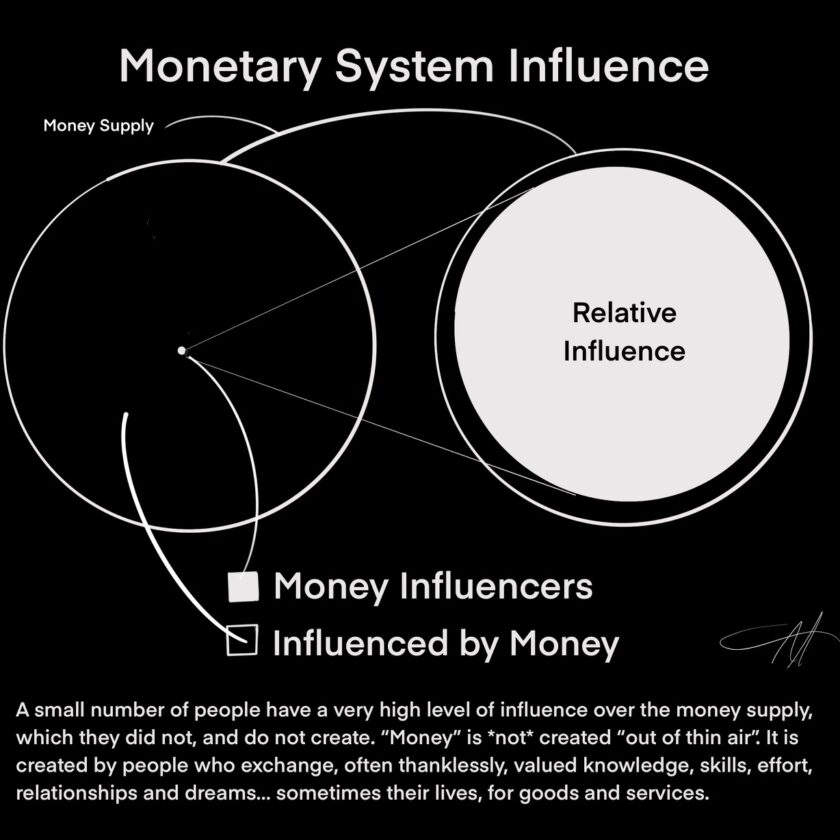Currently, I’m reading Diving Matrix: Bridging Time, Space, Miracles, and Belief, by Gregg Braden. While he makes many points that merit reflection, one that is addressed early on is the subject of space. The vast universe that we observe, both macrocosmic and picocosmic, is predominated by what we perceive as “space.” 
Space predominates, and allows us to perceive and define our solar system, through the relationships between the sun and the planetary bodies that orbit it, including our earth and moon. The volume of space that fills the distance between these celestial bodies is much greater than the size of the bodies themselves.
Space also predominates and allows us to define the atomic and sub-atomic systems of all material worlds, alien and familiar. It governs the relationships of particles at all levels of expression. In each instance, the proportions between the particle and space appear to be constant, with the particle “displacing” a relatively amount of space, and space comprising everything else. In other words, space, which is invisible, is the predominant component of, and force behind, the visible universe.
Noteworthy in this observation is our perception of space. Because we can only “measure” it through the relationships that it allows us to define between things that we can see, we tend to think of invisible space as “nothingness,” or the absence of “somethingness.” Braden suggests that this is not true; that there is “somethingness” to space, and that this somethingness, is divine. Indeed, our inability to measure the “mass of space” leads us to conclude that it is a void; devoid of any ability to influence us. This assumption is similar to our inability to fully grasp the nature of God, which leads some to question Its relevance to, and influence in our day-to-day lives.
As I said, I’m still in the early part of the book, and look forward to reading more. But the point I felt was really worth reflecting on right now is this: given how vast the spatial distances of the Universe are, on all levels from the tiniest scale to the grandest, imagine for a moment what would result if the “space” wasn’t there. If all the particles that exist in the physical universe had no space between them, what size would they even amount to?
Well, Braden suggests that they would amount to the size of a single green pea, but would put out an unbelievable amount of heat, something to the tune of 18 billion million million million degrees Fahrenheit. You might also think it would have mass of equally immeasurable density, but scientists who measure such things suggest otherwise.
“It’s about 300 billion billion billion times less dense than water,” said John Peacock of the University of Edinburgh, “or one ten-thousandth of an ounce in a volume the same size as the Earth.”
So in that respect, the universe is actually a light weight.
Perhaps “mass” as we know it, is actually not in the particle, but in the space. If all the space were removed, perhaps the density of the green pea-sized mass of all the particles in the universe would equal that of a green pea.
To be nothing, space is really important stuff.
It makes sense to me that God would be the space — in the entire universe and all dimensional levels — between the particles that we observe and perceive as reality. For all those people looking for God to be a jolly old man — perhaps a teetotaling widower with a white beard whose right side we want to be on, and left hand we want to avoid — this might be a disconcerting picture. I can see it though, because it would be the God of all creation, of all worlds, and beings who live and move within them, and the space that they travel through.
Without the space, the visible universe would be little more than a single pea in a primordial pod. The real intelligence, the real power, the Force, the Order and the Chaos, the Change, and the Impulse, is in that which makes material “relativity” possible. Just like God. All of these factors represent a form of interdependent somethingness.
Just like you and me.




